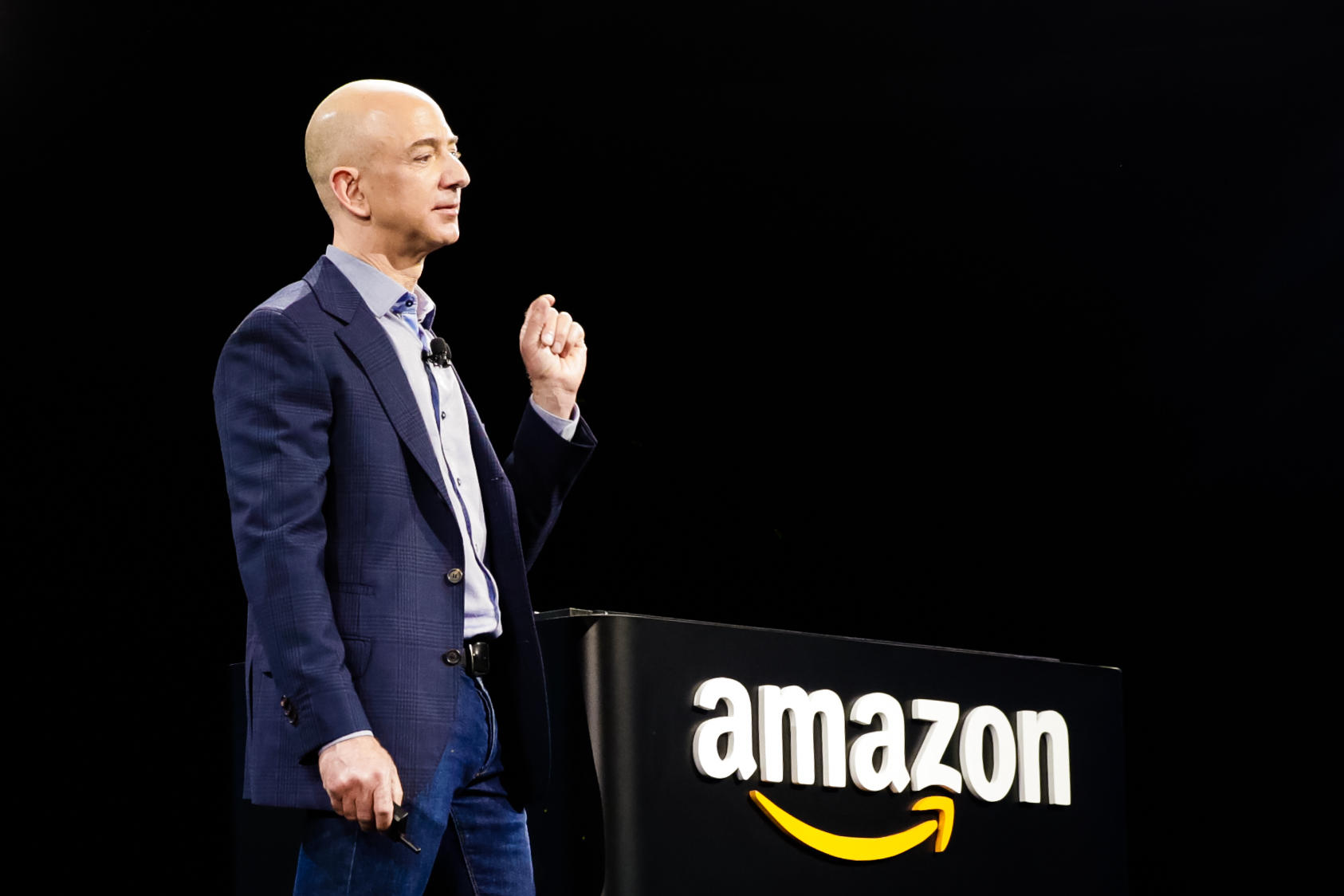Haunted by China, Amazon pumps $3 billion more into India

What a difference a few years makes.
Amazon chief executive Jeff Bezos
In 2014, the e-commerce game began in earnest when Flipkart and Amazon announced that they were investing $1 billion and $2 billion, respectively, into India followed by Snapdeal attracting $627 million from Japan's SoftBank Group. The frontrunner to beat was Flipkart, which was somehow always in the news, their co-founders Sachin and Binny Bansal trumpeting some accomplishment or the other in a relentless barrage of self-plaudits.
Back then, Amazon was still a newbie. Having started its India activities in 2013, the company was still trying to cut its teeth in the India market. Flipkart was the dominant leader going from strength to strength in terms of market share, brand recall and funding. (It would go onto raise another $1.4 billion in the next year.)
Today, Amazon has become the Great White Shark cruising Indian waters gobbling up market share from its rivals. Amazon is the only company to have gained market share in the last year (from 14 percent to 21 percent) while Flipkart has slid from 43 percent to 37 percent and Snapdeal from 19 percent to around 14 percent.
While Flipkart's and Snapdeal's revenue growth has actually declined in what is one of the hottest e-commerce markets in the world, Amazon's has galloped along at a 150 percent clip in the first quarter of this year.
Now, in an effort to deliver the first in a series of what it hopes are knockout punches to its rivals, Amazon CEO Jeff Bezos announced a few days ago -- at a Washington DC event attended by India Prime Minister Narendra Modi -- that the e-commerce giant would inject another $3 billion into Amazon's India arm in addition to launching a high-margin and lucrative business in India, its Web Services Cloud Region. Moreover, Amazon said it would soon be also opening the firm's largest software engineering and development center outside of the United States, in Hyderabad.
The announcement could not have come at a worse time for Flipkart and Snapdeal. Both companies have received a significant valuation 'haircut' of up to 40 percent. They have been struggling to raise money, have initiated spending cuts and hiring freezes, and seem to be in a sort of existential crisis. The crisis is accentuated by the fact that Flipkart's product range, user experience and customer service seems eons behind Amazon's, some of which I wrote about here.
For Amazon, this is just the beginning of a no-holds-barred contest that they are determined to dominate. India is the one market that they cannot afford to lose, having already been shut-out in the world's biggest market outside of the United States which accounts for 35 percent of the globe's e-commerce sales--China. Despite leveraging its abundant coffers there, it has only managed to grab onto out a miserable 1.1 percent market share and has been trounced by its nemesis Alibaba. In some ways, its recent investment in India is also a signal to Alibaba which has also declared its intentions to enter the e-commerce market in India in a major way.
India, unlike China, is still relatively unchartered territory and has tripled its internet user base since 2014 to 300 million people. According to a recent Morgan Stanley report, the e-commerce market in the country has the potential to balloon to $137 billion by 2020 so this is an opportunity that Amazon is not prepared to miss.
A few things characterize how it will go about its business in India. The first: "Our deep paranoia that a customer doesn't find the best shopping experience elsewhere is core to how we approach our daily jobs," said Amazon India boss Amit Agarwal.
The second: Spend, spend, spend. "We know that in order to win in India we need to do things we have never done in any other country," Agarwal said.
"We need great people, a great platform, and honestly, a lot of money," said Diego Piacentini, Amazon's senior vice president for international retail, who oversees operations in Asia and Europe, in Fortune Magazine. "We should have spent way more in China. On everything," said Piacentini. "And that is why we are not shy in India," he added.
Amazon's India campaign is not without hurdles. For one, the recently re-configured foreign direct investment (FDI) rules have put a wrench in the ability of e-commerce to deeply discount merchandise in order to lure consumers and fund losses through venture money (or just cash in Amazon's case). Now that this avenue is temporarily closed and until other loopholes are discovered, cash-strapped Indian players will get a brief respite through a somewhat level playing field.
Then, there are global behemoths like Tata's and China's Alibaba who are charting their own courses for an e-commerce onslaught which won't make life easy for Amazon. Flipkart, too, is far from down-and-out and through its early mover advantage in India has created a widely recognizable brand for itself which it can capitalize on if it gets its fundamentals right.
However, with a bottomless bank account and battle-hardened global expertise in the e-commerce game, it will take some doing to stop this juggernaut called Amazon in India.
